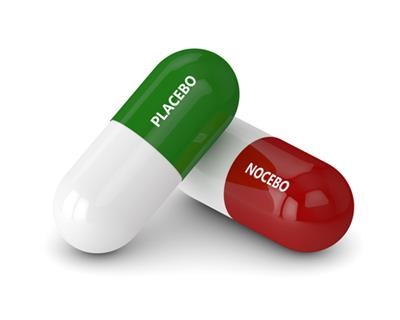
Mind Over Body
Ever heard of Henry Beecher? He was an American doctor who discovered the placebo effect as a medic in World War II. When he ran out of morphine to ease the pain of wounded soldiers, he instead administered a mixture of salt and water but told them it was a drug to relieve pain. He reported that 40% of his patients stated they felt less or no pain.
In 1955 Beecher published the article “The Powerful Placebo” on the effects of substances that have no therapeutic effect but that can relieve pain and other symptoms, although it’s not clear how they work. Research has since described the “placebo effect” as “a beneficial effect produced by a placebo drug or treatment, which cannot be attributed to the properties of the placebo itself, and must therefore be due to the patient’s belief in that treatment.” The brains of some people who are prescribed a placebo which they think is the real drug produce more dopamine, a natural chemical messenger in the body involved in feeling good and associated with reward, motivation, memory, and attention.
The human brain is a powerful organ. Sometimes simply a doctor telling a patient that they will soon feel better is enough to lessen pain and soothe other symptoms. And the human body is a chemical factory that produces many drugs it needs. American physician Leo Galland in his 1997 book Power Healing: Use the new integrated medicine to cure yourself outlines some of these natural defenses: “(1) the constant shedding of the skin and the lining of the gastrointestinal tract, which slowly dispels environmental toxins from the body; (2) the activity of protective immune responses that limit the attachment of toxins to the surfaces of the lungs or the gastrointestinal tract; (3) enzyme systems in the liver that destroy toxins and prepare them for excretion in the bile or the urine; (4) enzymes that repair damaged cells and promote healing.”
Dr Galland also affirms that “A high intake of vegetables increases the consumption of a group of natural chemicals called saponins, which have immune-stimulating and antibiotic effects. … In humans, they may thwart cancer and ward off infection.” So eating foods with loads of saponins, such as soybeans, chickpeas, bean sprouts, asparagus, tomatoes, potatoes, and oats, may well help to protect the human body. And convincing yourself that you can use your mind to control pain may help. Conscious relaxation, meditation, positive thinking, and other mind-body techniques can help reduce pain and the need for medication.

